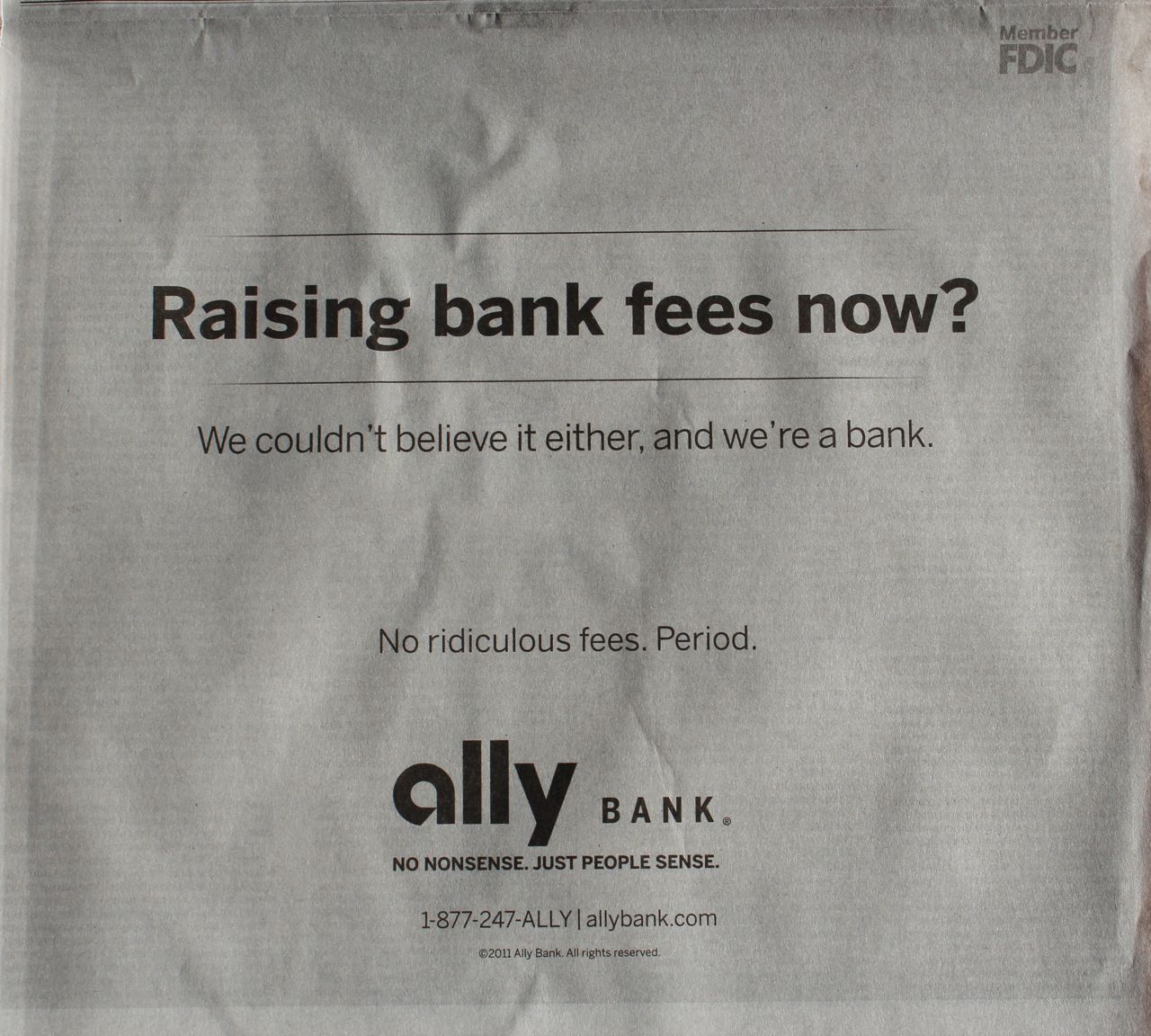Ally Bank shows there’s a right time for even ad-free brands to advertise
Even though I wrote a book called The Ad-Free Brand, I don’t hate all traditional advertising. In fact, sometimes, I absolutely love it. Today is one of those days.
This morning I opened the New York Times, reading, among other things, stories about the Occupy Wall Street protests. In the business section, on page 7, the top of the page featured a series of images of the protesters, from an 87 year-old man in a walker to a woman carrying a sign that says “Logic of capitalism: you cannot be rich without making others poor.”
Right beneath these photos was a half-page ad from Ally Bank. I’ve been keeping an eye on Ally for the past few years because they seem to be a fantastic example of a Zag approach—a bank that is going one way when every other bank is going the other (in my view, wrong) way. Here is a story that will give you some background on Ally’s approach, but essentially their mission is to re-humanize banking. According to their website, the bank was founded on three simple principles: 1) talk straight 2) do right 3) be obviously better.
That sounds pretty good for a bank.
Here is a close up of the ad that appeared beneath the protester photos:
In The Ad-Free Brand, I answer a question I’m often asked: Can ad-free brands ever advertise?
The answer?
Absolutely.
But rather than building their brands exclusively through traditional advertising, ad-free brands build their brand by following the principle of esse quam videri, “To be rather than to seem to be.”
Rather than talking about what the brand is through the language of advertising, they live the brand and design it into the DNA of the organization so that the brand comes through in every interaction with it.
But sometimes there is a moment in history when a brand story resonates especially well on a broad scale.
For Ally Bank, this is that time.
For the last few years, Ally has been building a brand as a different type of bank from the inside out, by being a more human bank rather than just seeming to be a more human bank. Even though Ally isn’t exactly an ad-free brand (they do regularly spend money on traditional advertising), they are investing much more money and effort getting the brand experience right than they are in spouting endless marketing messages.
Now, with a growing movement increasingly dissatisfied with the financial industry, it is a perfect time for them to dial up the volume with a few well-placed advertisements. And with a pitch-perfect, authentically-articulated message, this particular ad not only differentiates Ally from its banking competition, it serves as an olive branch—one bank willing to break with its brethren and show sympathy to the pain being expressed by a growing movement.
I mean, come on. Are the banks really arrogant enough to believe it is OK for them to screw the very consumers who bailed them out and have seen none of the benefits from that investment trickle back to them? Ally Bank doesn’t think so.
I don’t either.
—
If so, you can find more thoughts about how to build your brand effectively in my book, The Ad-Free Brand (not an advertisement, mind you, just a friendly suggestion:).
Only $9.99 for the Kindle, but available in each of these formats:
Book | Kindle | Nook | EPUB/PDF

